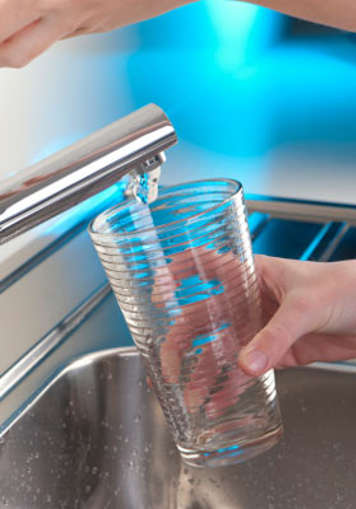After your transplant, your main goal is to make healthy food choices and drink enough fluids every day. A healthy diet is low in salt, sugar and fat and high in calcium and fibre.
Following healthy eating guidelines will help you control your cholesterol and sugar levels as well as your blood pressure and make sure you have a healthy weight and strong bones.
Some of the immunosuppressants (anti-rejection medicines) you take after your transplant surgery can affect your immune system, your appetite and your body’s ability to store the right level of nutrients to keep your cells working properly. Some may also have side effects such as an increased risk of high blood pressure.
Eating the right foods and drinking the right amount of fluids will help you help you control some of the medication side effects and help you keep a healthy body weight. Safe handling of food will help you minimize the risk of food borne illnesses and also make a big difference to your quality of life with your organ.

How will my diet change when I have a kidney transplant?
A kidney transplant is a major operation. Your body will need proper nutrition and enough calories and protein to heal and fight infections after surgery.
The day after surgery, you will only be allowed to drink clear fluids. But slowly, over time, you will move to a full fluid diet and then take regular food again.
There is no special "kidney transplant diet". Your transplant team will monitor your health and do frequent blood tests after your transplant to check your nutritional status (the nutrients in your blood resulting from your diet or any medication side effects). Based on the results, your team will tell you what foods, fluids or supplements you need to take. If you have any questions, your dietitian will be very happy to answer them.
Drinking enough fluids to flush out your system
The medication you take is designed to keep you healthy, but it can also be hard on your kidneys. It is very important that you drink enough fluids, especially water, to flush the harmful parts of the medicine from your body. This sometimes means drinking three or four litres of fluid every day.

Your doctor, transplant nurse or dietitian will tell you how much fluid you have to drink each day to keep your kidney working well. This is called your total fluid intake (TFI).
Drinking plenty of fluid will prevent the creatinine levels in your blood from becoming too high. You will have to drink more than your usual TFI if you:
- are sweating, for instance in hot and humid weather
- lose fluids while sick, for instance if you are vomiting or have diarrhea.
Iron deficiency and anemia
Iron deficiency can occur when kidneys are diseased, damaged or not working properly and do not make enough erythropoietin (EPO). As a result, the bone marrow makes fewer red blood cells, causing anemia. Iron deficiency or anemia can also occur after kidney transplant due to low iron intake, blood loss during surgery and medication interactions.
After transplant, your blood work will include tests for iron deficiency anemia. To reduce the risk of anemia, it is important to include iron-rich foods in your diet. In some cases, an iron supplement may be prescribed for a short time to help increase your body’s stores. You may also need to take erythropoietin.
Special diets to manage your weight, cholesterol or blood pressure
If your transplant team has any concern about your weight, cholesterol or blood pressure, you will need to follow some dietary guidelines to maintain a healthy body weight or follow a special cholesterol-lowering diet or low-sodium diet.
Diets to adjust to changes in your electrolyte levels
Electrolytes are substances in the body that control how the cells work. They include sodium, potassium, phosphate and magnesium.
Some of the medications you need to take may raise or lower the levels of some electrolytes in your blood. If this happens, you must balance the electrolyte levels by eating different foods. For example, if your potassium levels are high, you will need to follow a low-potassium diet. In some cases, you may also need to take medications to help lower your potassium levels.
If your blood has low levels of magnesium or phosphorus, you may need to take an electrolyte supplement (pill or liquid) if a high-magnesium diet or high-phosphorus diet cannot raise the levels. If your blood has high phosphorus levels, you may need to follow a low-phosphorus diet.
Your healthcare team will monitor your recovery and tell you if you need to change your diet or take supplements and for how long. The changes might only be for the first three to six months after surgery, but they can sometimes last longer.
Vitamins and minerals to keep your bones healthy
Some medications, and sometimes the disease you had before your transplant, can affect your bones. It is essential to have enough calcium and vitamin D every day to keep your bones strong and healthy. If you do not eat enough foods with calcium and vitamin D, your transplant team may recommend a calcium or vitamin D supplement.
Adjusting to anti-rejection medications
When you first receive your kidney, you will need to take certain medications to stop your body rejecting the transplant. These are called immunosuppressant or anti-rejection medications. They work by stopping the immune system from working normally so that your body does not reject the new kidney.
Some immunosuppressant medications can raise blood sugar levels, which can lead to glucose intolerance or diabetes. Your transplant team will check your blood sugar levels regularly. If they are high and diabetes develops, you may need to take insulin, a hormone that helps to keep blood sugar levels normal. Diabetes after transplant generally lasts only a short time.
Whether or not you have diabetes, still take time to learn how to read nutrition fact tables and food labels to follow a healthy diet and identify products that are lower in sugar (less than 8 g of added sugar per serving).
Safe handling of food is important for everyone, but it is especially important when you are taking anti-rejection medications. When your body is less able to fight infections and defend itself against bacteria, you are at a higher risk for getting sick from contaminated food.
Special diets
Below is the full list of special diets after a kidney transplant. Remember, you will not need to follow all these diets, only those that your transplant team recommends for you. Every transplant patient is different – your transplant team will decide which diet or diets you need to follow based on your own needs and the side effects that you experience from your medications. Your team will also work with you to follow your recommended diet(s) if you have any food allergies.
Click on the diets below to get more information about them.
- Maintaining a healthy body weight
- Low-sodium diet
- Low-potassium diet
- High-potassium diet
- Low-phosphorus diet
- High-phosphorus diet
- Low-sodium, low-potassium, and low-phosphorus diet
- Cholesterol-lowering diet
- Calcium- and vitamin D-rich diet
- High-magnesium diet
- High-fibre diet
- Energy-boosting diet
Can I ever eat my favourite food again?
The good news is that you can! After about six months, as long as your new kidney is working well and there are no other problems, your dose of prednisone (an immunosuppressant) can be lowered. When this happens, you will be able to start eating some of the foods you had to avoid before.
Remember, though, that it is still important to follow a healthy diet - moderation and variety are key! Speak to your dietitian to help you choose healthy foods.






